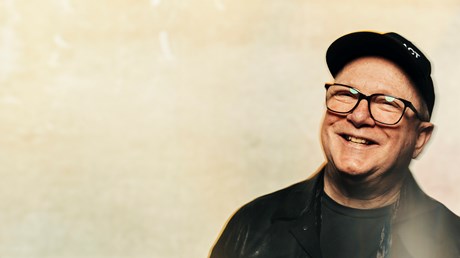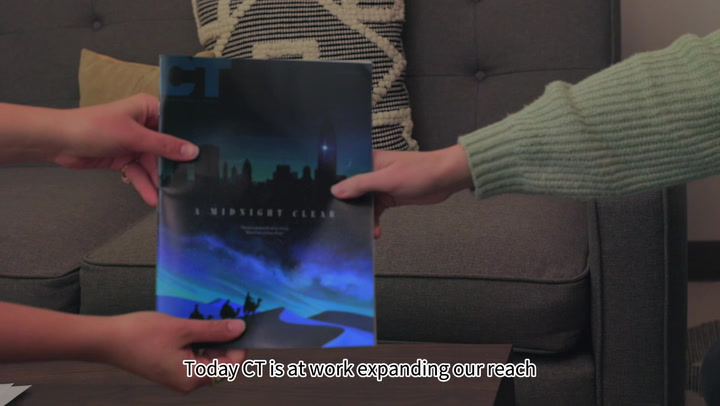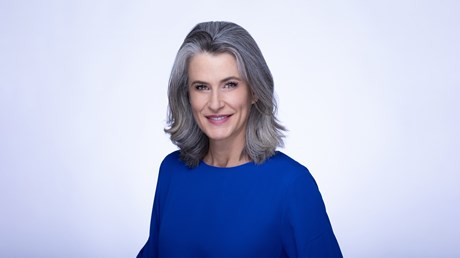Will you help encourage and connect the church?
Give NowWill you help encourage and connect the church?
Give NowRecently three staff had the opportunity to visit Israel, all for different purposes. I had the privilege to be one of them, along with Mark Galli, editor in chief, and Marshall Shelley, editor. We compared notes when we returned.
Like many Christians, I've hoped for years to go on a pilgrimage to the Holy Land. So I excitedly accepted an invitation to go on an evangelical press trip sponsored by the Israeli Ministry of Tourism. During the week, the focus was on following the footsteps of Jesus at New Testament sites, including Jaffa, Nazareth, the Galilee region, and Jerusalem.
Mark Galli helped organize a trip for evangelical thought leaders co-sponsored by the Jewish Council for Public Affairs. The trip was an attempt to get a balanced picture of what is going on in Israel. Galli pointed out that "so much of the conversation about that land is driven by extreme Zionists or Palestinians that it's hard to grasp the complex facts on the ground."
Marshall Shelley's trip was with his local church and hosted by Telos, a group that is "pro-Israeli, pro-Palestinian, and pro-peace." Their purpose was to meet Israelis and Palestinians (both Christian and Muslim), to understand the conflict and the possibilities for a just and peaceful way forward.
I was surprised at the beauty and richness of the country and the welcoming nature of the people. The visuals of violence that we see on television clearly do not show the full landscape. I reminded myself that the beauty shouldn't be a surprise considering this is the land God gave his people.
When you have the opportunity to visit such a historic and meaningful place to your faith, you want to make the most of your time. I personally sought to stay prayerful and aware of what the Holy Spirit wanted to show and teach me. It didn't take long to be moved.
As we stepped out of our van in the beautiful Galilee region, I took a deep breath. It was a lot to take in. I saw the same environment that Jesus saw 2,000 years ago—stony open fields, mountains on several corners, birds dipping into the Sea of Galilee for a fresh catch. I walked on the same dusty paths. I pondered his revolutionary teaching and miracles—stories I've read countless times, but often skim over. I stood at a first-century synagogue in Capernaum where Jesus taught the locals. I observed St. Peter's house where the paralytic's friends lowered him through the roof to meet Jesus. I silently worshipped at the Church of the Multiplication where Christians believe the feeding of the five thousand took place. Those are memorable moments that I'll undoubtedly remember as I read or hear the Gospels for the rest of my life.
Galli's group was honored to meet with both Jewish public intellectuals and Palestinian leaders—one at the highest level of government who asked that the meeting remain off the record. They also visited Christian pilgrimage sites, as well as organizations seeking reconciliation in small but impressive ways—like Kids4Peace, which brings Jewish, Christians, and Muslim youth together for summer camps and a six-year ongoing program to "inspire hope in divided societies around the world."
Shelley was moved by two people that exemplify peace in a land that is all but peaceful. "Meeting Roni, the wife of an Israeli farmer on the border with Gaza, was quite memorable. Rockets have destroyed some of their greenhouses and killed one of their workers. But each week she goes to the checkpoint to give rides to Gazans who have gotten permits to enter Israel for medical care or family emergencies. Now she has friends in Gaza that she keeps up with by phone, since access is almost completely shut off. Her determination to break the cycle of violence makes her one of my heroes."
He also met Daoud Nassar, a Christian Palestinian whose family has farmed a hillside near Bethlehem for more than 100 years. "Despite the encroachment of Jewish settlements into the West Bank that almost completely surround him and have taken the land of all of his neighbors (and have tried to take his land too), he firmly but peacefully resists. One settlement of 40,000 people has extended to within a couple miles of him. He has a sign written on a large stone near the entrance to his farm: 'We refuse to be enemies.' He too is one of my new heroes."
Mark, Marshall, and I all come back to the United States with a renewed love and appreciation for Israel, but also a better picture of the complexities in play when we hope for peace in the land that Jesus gave his people.
I was struck as we drove through Israeli checkpoints into Palestinian territories, where the landscape and infrastructure changed immediately to broken roads, shacks for homes, bags of trash laying around, and people who were clearly struggling to provide for themselves and their families. The distinction was stark. I was reminded throughout the trip that most Israelis and Palestinians want peace, but don't know how to get there.
Galli observed, "Nearly everyone we met (over 50 Israelis and Palestinians), who had been buoyed by the 1993 Oslo Accord, were in despair about the current prospects for a peaceful way out of the current dilemmas. But we also met some younger people from both sides who were engaged in grassroots reconciliation projects: these were men and women of deep enthusiasm and hope."
As Galli noted, it could be that where political efforts have failed, the patient building of relationships across divisions might be the first step in moving the troubled land toward peace. The group prayed often for the peace of Jerusalem, as well as Palestine.
Shelley says he continues to support Israel because of its history and its twin ideals of being a Jewish state and a democracy, but reflects that "now I've seen that Israel is treating many of the people in its own territories with something other than democracy and justice." He adds that "the solution is not easy or simple, but the pursuit of justice for the 'stranger in our midst' is one of the most frequently repeated commands in the Bible, and it must not be neglected."
When we in America think of Israel, we get a sense of danger or risk—and might think twice about a trip there. From everyone I've spoken to that's visited Israel, though, I always heard the same things about their experience: safe, beautiful, and life-changing. And the three of us from Christianity Today that experienced the country firsthand heartily agree.
Cory Whitehead is executive director of communications and development at Christianity Today










